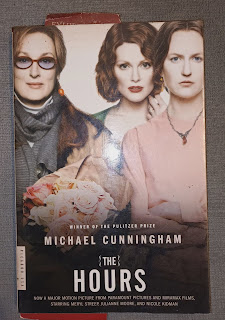Book
Review by Jophen Baui
Mga Prodigal may
be an allusion to "The Prodigal Son", a story from the
Bible that Jesus Christ told his disciples to illustrate a Father's love to his
returning lost son. In the story, the son wanted a share of his fortune so he
could go his way forth and be free to live as he wanted. For a while, he lived the
"good life", but as a consequence of his poor stewardship of his
inheritance, he ended up bankrupt. In the end, he decided to go back to his
father, who welcomed him back with open arms.
In Ms. Sicat's novel however, the
title Mga Prodigal symbolizes the Filipino's desire for
freedom from poverty and from oppression. To be a prodigal is to fight the
general situation of poverty, by leaving the homeland to search for greener
pastures abroad. Overseas Filipino Workers now populate the globe, and as this
novel affirms, their stories are as many as the grains of sands in the dessert.
In Mga Prodigal the stories told cinematically are generally
dim. While reading, one may ask of the characters, "but do they have a
choice?" Many of their stories will remain undocumented, so it will be
difficult to generalize on whether Filipinos have gained more or lost more from
their ventures overseas. In fact the general impression is that there are more
positive OFW stories - many are financially able to invest in decent homes,
their children attend better schools, their lifestyles are improved. Ms. Sicat
however is not interested in positive stories. She probes the truth behind OFWs
so called "sacrifices".
Like the stories of millions of
Filipinos abroad, the novel is an unfinished account with many beginnings and
almost no endings. Every character in this novel has an unfinished sad
story to tell. Every chapter is a snippet that contributes to a general
depression that will make Filipino readers think more deeply about their
choices. Ms. Sicat succeeds in presenting graphic scenes showing the losses and
lack and limits that Filipinos have to go through in their collective
experience.
|
|
"Gustong-gusto
niya kapag nanggagaling sa Nasuli ang kanyang
Auntie at Uncle. Marami silang dalang prutas at gulay. Kung tag-kaimito,
tag-kamunsil, tag-bayabas, tag-sinigwelas, tag-makopa. Doon din
nanggagaling ang mga bulaklak na birds of paradise na
tumutubo sa likuran ng kanilang bahay at angcome
down my love na umaabot sabanggerahan mula sa pagkakakapit
nito sa santol sa gilid ng bintana. Naalala
rin niya ang mga dahon nglagundi na
pinapakuluan ng kanyang Auntie. Ito ang pinapainom sa kanilasa umaga
bago sila pumasok saklase." from the novel Lumbay ng Dila by Genevieve Asenjo
WATCH YOUR
FAVORITE MOVIE
|
Regardless of their educational
background the dominant-all-men characters in this novel are all lumped under
one category - the working labor class. Ms. Sicat tuned in to their grievances,
their loneliness, their unfulfilled dreams for better lives and homes.
Antonio, a former member of the NPA, and now an electrician in Sharjah,
Dubai, experiences extreme loneliness from separation from family, and
witnesses some sad consequences of living and working far away from home.
He works with fellow Filipinos, who each try to make lives back in their
hometowns better, but at the cost of their sanity and emotional well-being. By
going back and forth in Antonio's past and present, the novel shows how labor
as an end in itself gives personal fulfillment, dignity, and freedom. Then in
other chapters, the story explores the often constricted and demeaning labor
situation experienced by Filipinos in their quest for better life. The men -
Antonio, Vito, Ernie, Alvin, Marvin, Treb, and Mitoy sweat in their workshops
and assignments while haunted by the ghosts of their unhappy lives. They repair
broken air-conditions and fix problematic electrical lines while their families
break and disintegrate before their very eyes. Amidst their personal grudges
and dissatisfactions they trade Pinoy escapist and sarcastic humor, and bond in
all-macho-men drinking sprees. Very rarely do they show their feelings to each
other, but the novel is full of their heartaches.
Are you a writer?
Come visit us.
|
Mga
Prodigal also
hits off tangentially at the political system. Antonio is a former NPA rebel.
The NPA way embraces poverty and not runs away from it, but from Antonio's
point of view, this cause is given a better insight and a more hopeful slant.
Ms. Sicat however will probably write another novel that will essay the stories
of those who went to this extreme. Who knows what unfinished stories they have
to tell? Meanwhile, the Filipino prodigal who is the hero in this story, he who
labors and sweats overseas, would rather not confront the system. Some may have
actually become richer, yet in many intangible ways, they have become poorer
than the ordinary Filipino laborer who chooses to stay.




No comments:
Post a Comment